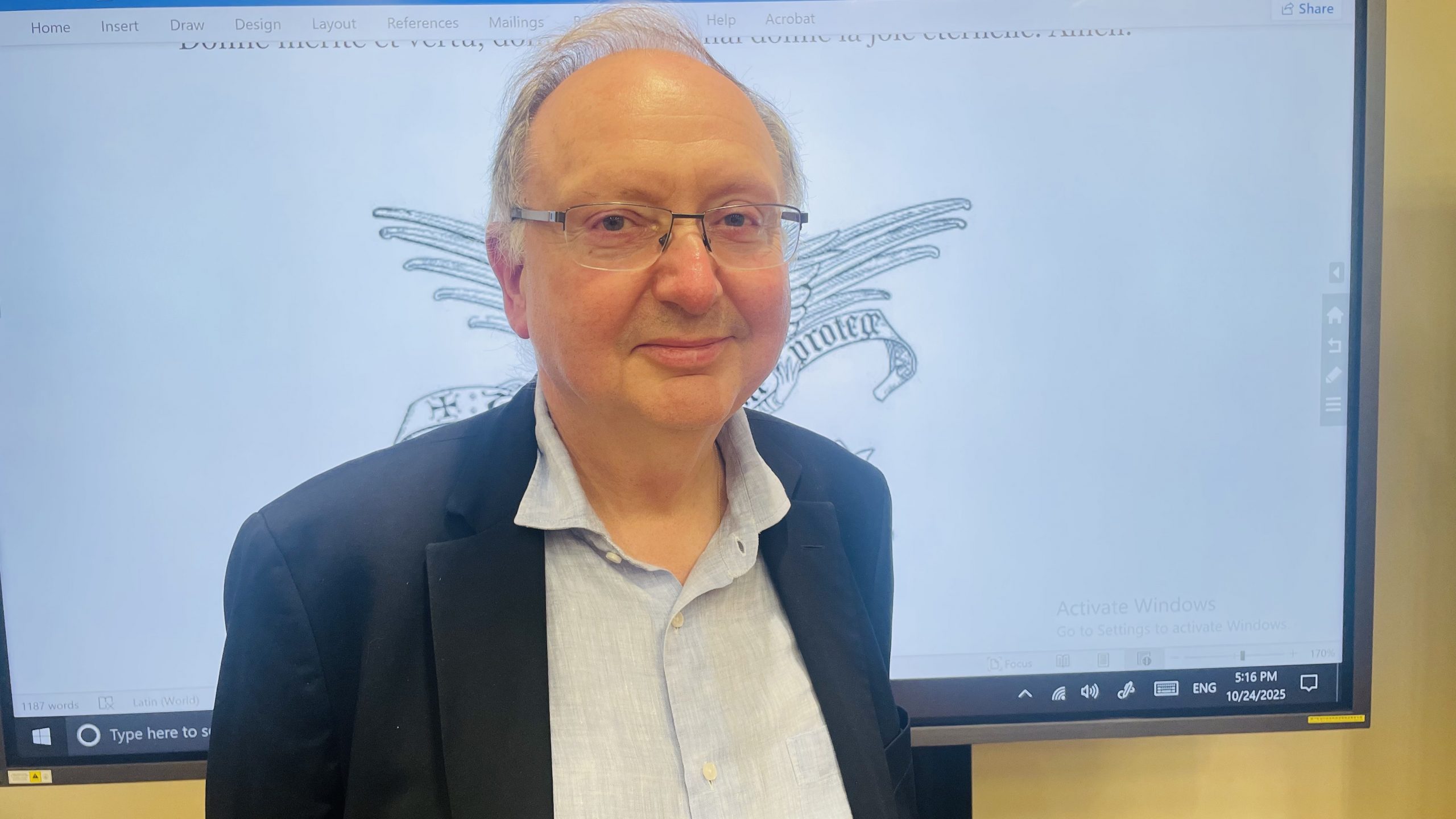– Marco Carvalho
Macau universities were granted authorization by the Government so that students can return to classrooms as early as April 1st, but the campus of the University of Saint Joseph will probably remain almost empty until the end of the current academic year. The reason?
The restrictions and contingency measures imposed by the Government, but also the efficiency of the distance learning strategies adopted by the higher education institutions.
The University of Saint Joseph will keep remote learning as its main approach to teaching after April 1st, even though the Government says students are allowed to return to the premises starting from next month. Father Peter Stilwell justifies the option both with the excellent results achieved with the e-learning strategies adopted by the University and the rigorous rules imposed by the Executive so that the students can return safely to the local campus.
The management of issues such as the disinfection of facilities and equipment, access to fields and the creation of conditions in order to guarantee the necessary distance between students makes it difficult to promote the “normalization” of the academic life, but the reason why the University of Saint Joseph may choose to keep its doors ajar is somehow different. Peter Stilwell was so pleased with the effectiveness of the remote teaching measures adopted by the University that he will suggest that those same measures remain in effect until the end of the current academic year: “I am currently preparing a message for the University and, in principle, our advice is that our teachers and our departments continue their work online, because it has been excellent until now”, the rector of the University of Saint Joseph says.“ Although it will be possible to return to the classrooms starting from April 1st, there are numerous restrictions that will still be applied: concerning the access to the campus, the use of masks and the disinfection of rooms and equipment. This makes this process all the more difficult to manage; when the classes are large they have to be divided into two or sometimes three classes, so that people are one meter away from each other. These are the kind of challenges that arise from the use of the campus”, Peter Stilwell admits.
The University of Saint Joseph operated the transition from an almost analog environment to digital classrooms in a period of just eleven days. Having been advised to remain at home, the students enthusiastically adhered to the new teaching methods and the good results achieved convinced the rector of the institution to suggest that the University should continue to operate almost entirely in a digital mode: “On the 11th of February we had all our courses working online, except for those that require students to be physically present, as it is the case with laboratory work or with machines that can only be carried out at the University’s facilities”, Peter Stilwell illustrates. The general reaction I get, through our coordinators, is that students are working harder now than they were working in the classroom. Online work has been much more effective”, claims the rector of the University of São Joseph, whose term ends in July.
Although successful, the process of adopting remote learning strategies will necessarily have to bring about a new approach to the way students are assessed and evaluated. With new working criteria, there are also new challenges in terms of evaluation, an issue which is being currently addressed: “A document is being prepared which addresses precisely the question of evaluation. We are asking teachers about the way they are evaluating students and what they plan to do when they finish their modules, if they intend to conduct a general assessment. It is through this consultation that we will seek to collect the general principles of how to assess online education”, Peter Stilwell says. “These new methods allow for the kind of continuous assessment that is impossible to apply in the classroom. When you have a classroom with twenty students, the teacher has a tendency to direct things on the teacher’s side and this process is much more interactive”, the rector of the University of Saint Joseph claims.
As with any major crisis, the outbreak of the new coronavirus helped to bring out the best in people, in a process that, Father Stilwell says, strengthened the institution. He praises the way the teachers and the staff of the University were able to rise up to the challenge: “It gave me great satisfaction to see how the whole University worked as an extended team”, father Stilwell admits. “The answer to this situation was not something remote controlled by the chief or the Rector: we all got together, devised a strategy, decentralized each faculty and each unit, each office assumed its responsibilities, we moved forward and we have a functioning university, I would say working a hundred percent. For some, a hundred and ten percent because the job requires much more effort on the part of the teachers”, the rector of USJ concludes.
Six sought help from the University
In mid-February, the University of Saint Joseph offered to help the Macau students enrolled in Taiwanese universities who were unable to return to Taiwan, after Formosa closed its borders to Hong Kong and Macau residents. The University offered to assist affected students and at least six interest contacted USJ, Father Peter Stilwell reveals: “We were contacted by six students. This was the number at the time and I don’t know exactly how this question evolved”, the rector of the University of Saint Joseph says. “There was also another group, from local students studying at Beijing universities, who also asked for our help. We made ourselves available to sign them up as readers of our library, allowing them to have online access to our resources. None of this implies coming to campus, but you need a code, an email address that can be recognized before the resources can be used. We have done what we can, as the small university that we are”, Peter Stilwell claims.


 Follow
Follow


